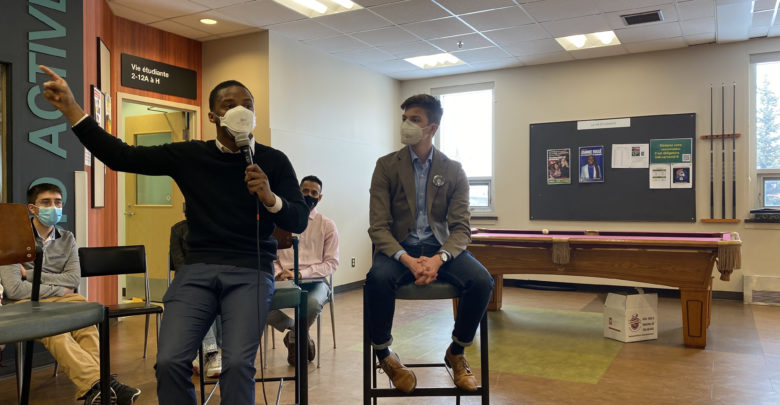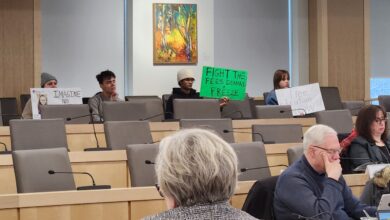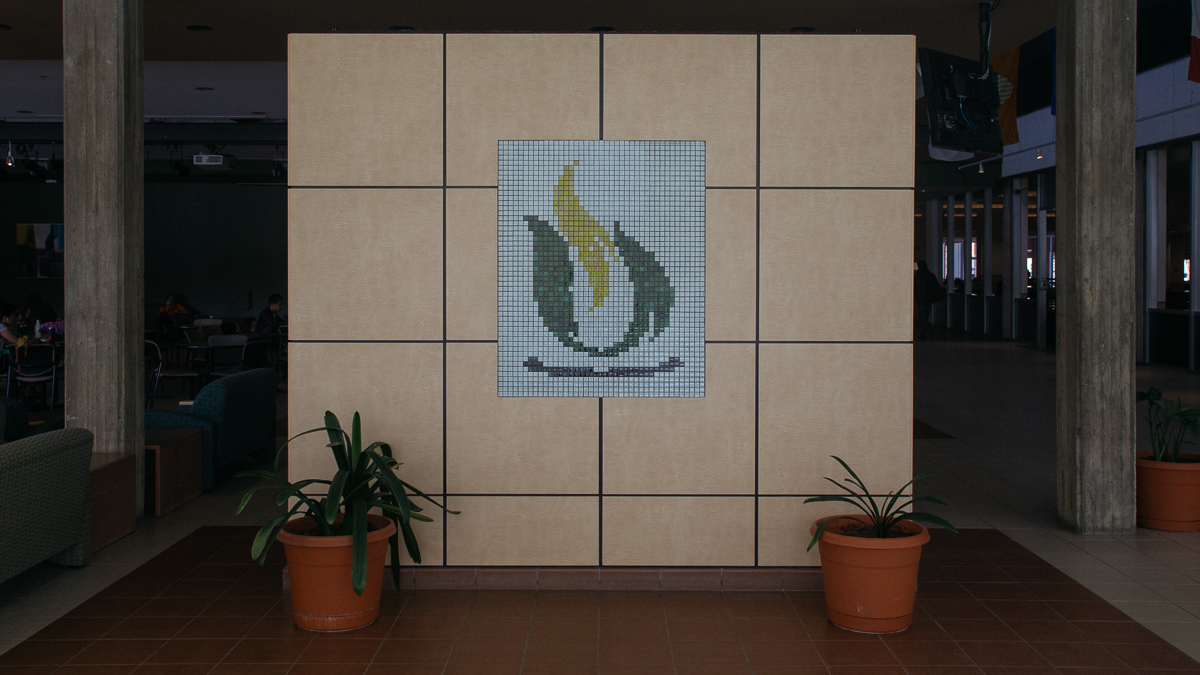 Emily Williams
Emily WilliamsThis article expresses opinions based on the Campus Saint-Jean Forum of the Students’ Union 2022 Election on March 2, 2022 and Aboriginal Student Council Forum of the Students’ Union 2022 Election on March 3, 2022.
Adequate and accurate advocacy and representation has been a huge topic in the 2022 University of Alberta Students’ Union (UASU) election. The Campus Saint-Jean (CSJ) and Aboriginal Student Council (ASC) forums took place on March 2 and 3, respectively. In the vice-president (External) (VPX) race, the candidates include incumbent VPX Christian Fotang, a fourth-year biology student, and Chris Beasley, a fifth-year political science student.
Since advocacy is the primary role of the VPX, both candidates have made this a large part of their platforms. In past elections and in the UASU in general, both CSJ and ASC have expressed frustration that they’re being ignored. Each election, prospective candidates will make big promises to Indigenous and CSJ students. But, they fail to advocate adequately for them throughout their term leading to CSJ and Indigenous students’ fears of being forgotten. In order to make the U of A a more inclusive and accessible campus, candidates need to commit to less talk and more action when it comes to advocacy.
Neither candidate offers their website in both French and English. Though Beasley offers his platform in both languages, the French version is unavailable on his mobile site. CSJ students have long asked to have campus services in both languages. Throughout the forum, both candidates talked at length about the importance of increased accessibility of French on North Campus. If Beasley and Fotang want to identify themselves as allies of CSJ, they should offer more of their campaign in French.
Beasley gave his entire introduction at the CSJ forum in French. As well, he also posted an Instagram story in both French and English. However, the post concerned Bill C-13, also known as the Modernization of the Official Languages Act. This would directly impact French speakers on campus. It’s unclear if Beasley will continue to post information about his campaign in both languages, or just those concerning CSJ.
Fotang sympathized with francophones at CSJ in his introduction, talking about the role language plays in cultural identity. He acknowledged that for a lot of students at CSJ, French is a huge part of their lives. Despite this, Fotang’s platform is not available in French.
Fotang says he is a “relentless advocate” for CSJ and their struggles. While acknowledgment as a cultural and linguistic group within the U of A community is nice, it isn’t enough. Many of the candidates don’t speak French, and that’s okay. However, they at least acknowledged that they couldn’t speak French and carried on with the forum. Fotang spoke some French, then spoke about his dedication to the CSJ.
During his time as VPX, Fotang has certainly been an advocate for CSJ. In his platform, he claims that he successfully lobbied “provincial and federal stakeholders for Campus Saint-Jean funding.” However, how can Fotang successfully advocate for French students when he doesn’t translate his campaign?
As a French speaker, the CSJ forum is the only time during UASU elections when candidates discuss issues that affect me. It feels fake hearing the candidates talk about how they understand French students’ struggles. Especially when they can’t even tell us in our language.
A large part of Fotang’s platform is about continuing the work he’s done as current VPX. A huge critique of the current advocacy at the U of A is that very little has changed. Many problems that disproportionately affect CSJ and Indigenous students are still rampant on campus — particularly rises in tuition. If the current advocacy isn’t helping people, something needs to change.
Beasley had a lot to say about Indigenous issues on campus in the ASC forum. However, his platform only mentions Indigenous people three times outside of the land acknowledgment. Two of these times, Indigenous issues are mentioned alongside those of other communities. The experiences of Indigenous students on campus is vastly different than those of other marginalized groups. In his platform, Beasley does make a promise to seek funding for Maskwa House. Fotang, however, mentions working alongside the ASC, First Peoples’ House, and other Indigenous-led student organizations in his platform.
Despite not mentioning Indigenous students often in his platform, Beasley is clearly passionate about advocating for them. Throughout the forum, Beasley refers to himself as a “settler here on Amiskwacîwâskahikan.” Beasley actively cares about Indigenous people, and it shows. But his platform is vague on how he wants to advocate for Indigenous students outside of Maskwa House.
Throughout the ASC forum, both candidates’ questions for each other were about larger issues, such as tuition increases, but not about Indigenous people specifically. The only connection made was Beasley briefly mentioning that tuition increases disproportionately affect Indigenous students. Later, Beasley criticized Fotang for lack of action until the end of his candidacy. Neither Fotang’s response or Beasley’s rebuttal mentioned the effects of budget cuts on Indigenous students.
When it was his turn, Fotang asked Beasley what his plan for direct action would be, especially since protests don’t always work. Again, neither Beasley’s answer nor Fotang’s rebuttal mentioned Indigenous students, how to involve them in protests, or communicating with them for adequate representation.
It’s deeply disappointing that neither candidate mentioned how they will help Indigenous students during their questions towards each other. Instead, they used their time to talk about how these cuts hurt all students. Indigenous students need reassurance that their needs will be met by the future VPX and that their concerns won’t be sidelined in favour of broader campus issues — especially given that this occurred at a forum dedicated to talking about Indigenous communities at U of A.
While planning protests is a vital aspect of the VPX’s job, the point of the ASC forum is to assure Indigenous students that they will be heard. Questions and answers solely concerning protest planning and general advocacy should have waited for a later forum. Both candidates missed an opportunity to include Indigenous students and their concerns in their answers.
A huge concern and fear for French and Indigenous students is that after the election is over, VPX won’t advocate for them in the way they need. If Beasley and Fotang are concerned about accessibility, they need to encourage active advocacy, and do things differently than previous VPXs.
CORRECTION: At 12:59 p.m. on March 5, this article was corrected to reflect that vice-president (external) candidate Chris Beasley has provided a platform in French on his desktop website. A previous version did not reflect its availability. The Gateway regrets this error.




